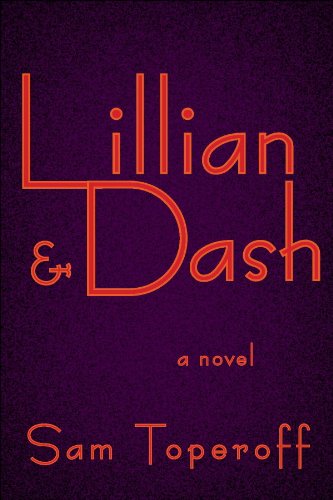Lillian & Dash
“A boozy, raucous, endlessly imaginative rendition of America during Hollywood’s golden age, as experienced through the lives of two of it most talented writers and creators.”
Who could resist that pitch?
Lillian Hellman and Dashiell Hammett meet at a party thrown by Darryl F. Zanuck of Warner Brothers. Dash was basking in the success of The Maltese Falcon while Lillian’s career was just beginning. The attraction was instantaneous; their tempestuous relationship lasted over thirty years through the Depression, the Spanish Civil War, WWII and the McCarthy era. Both were married to other people.
What struck me immediately were the distinctive voices Toperoff has created for Dash and Lillian: voices that reflected their different backgrounds, education, social position and desires in a way that I felt like I was physically present, not merely reading about them. Dash has a hardscrabble upbringing, his father a no-good drunk who likens men to wolves “lonely, hungry, untamed.” Lillian is formed by her genteel Southern upbringing and Jewish heritage.
Dash is the storyteller whose success diminishes as Lillian’s rises. Lillian’s career is on Broadway where “a second success is more deeply resented than a first” and indeed her second play, Days to Come, closes after seven performances. Lillian picks herself up. Dash wallows in booze and squanders his money on horse racing.
At times Lillian and Dash lived together; at other times they were on opposite coasts and glad of it. They were good together and bad together. They agreed and disagreed. They sparked and sparred. They fought and broke apart, inevitably circling back to sustain one another.
Interspersing Lillian’s and Dash’s voices with that of a third-person narrator, Toperoff presents a clear-eyed view of celebrity along with the major political and military events that bring about profound change in America and beyond.










